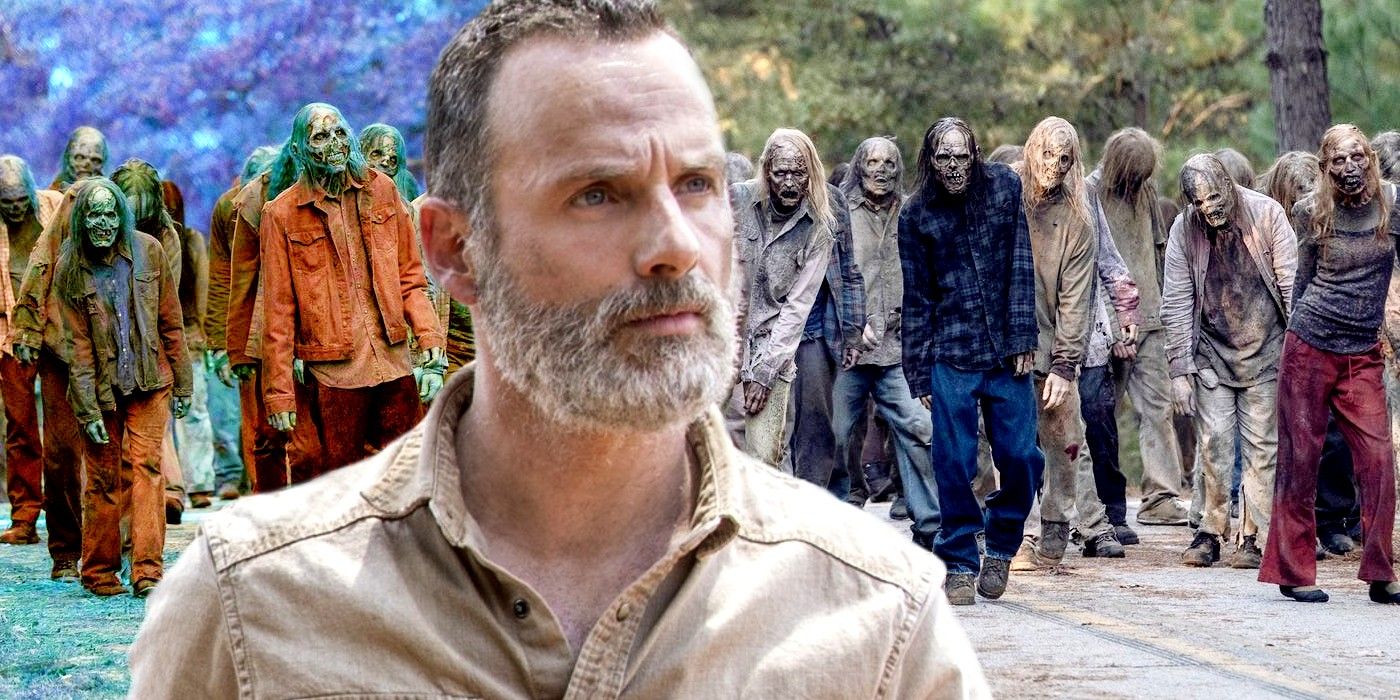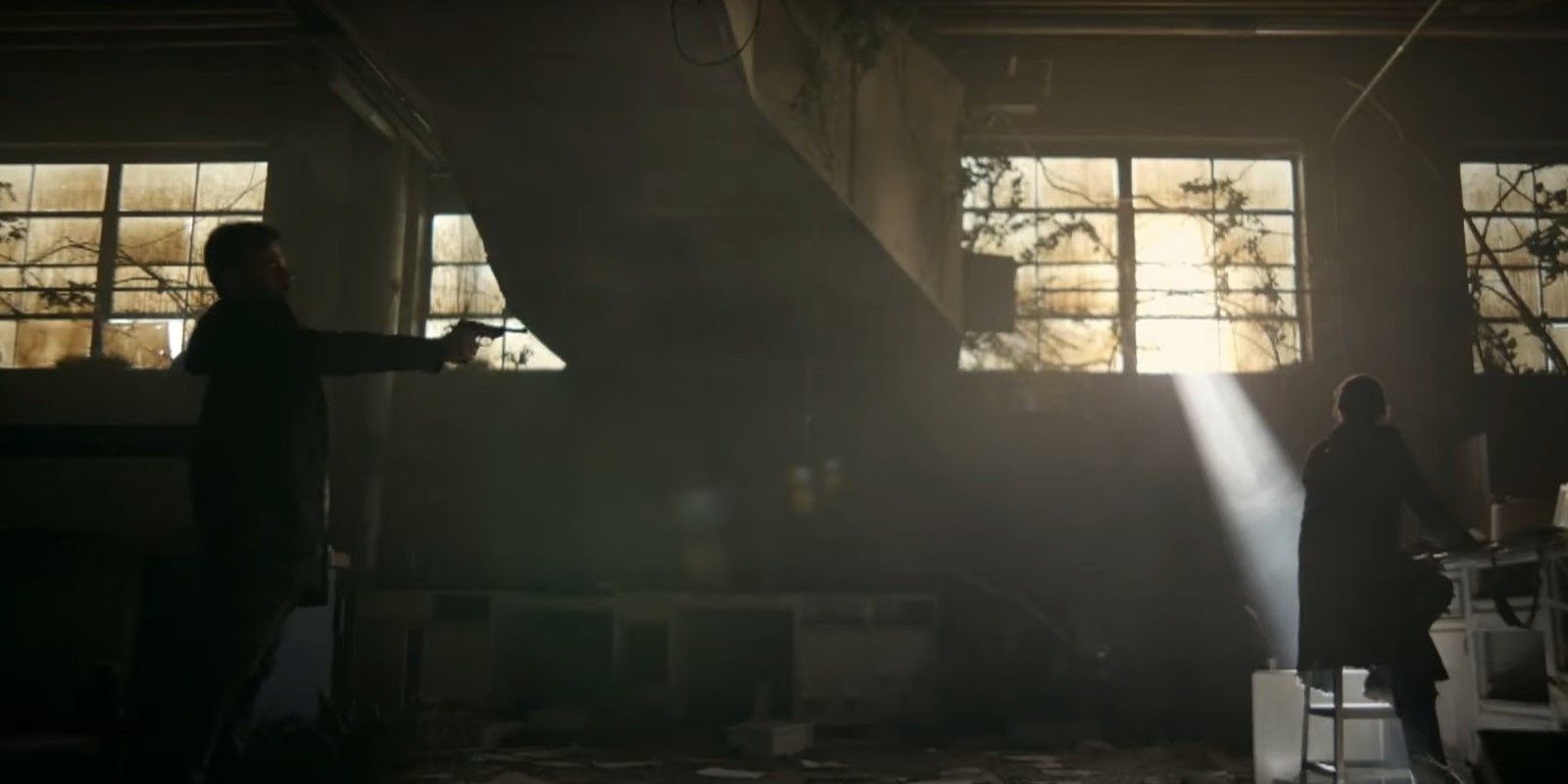
Caution: spoilers ahead for Walking Dead: World Beyond
After avoiding the issue for more than 10 years, The Walking Dead virus origin has finally been explained. When writing his comic series, Robert Kirkman deliberately chose not to reveal the Walking Dead virus' origin, and throughout the entire story, he never comes close to deciphering the truth. AMC's The Walking Dead TV adaptation inherited his philosophy and has consistently shied away from giving the audience a science lesson. Indeed, the closest The Walking Dead ever came to spilling the biological beans would be season 1's CDC episode, which Kirkman later expressed regret over.
But times are a-changing for The Walking Dead. As the main series draws to a close with season 11, the live-action franchise moves further and further away from Robert Kirkman's source material. Not only does the main show's Commonwealth storyline exhaust the comic books' last major arc, but the addition of the CRM takes AMC's Walking Dead franchise into loftier territory, where talk of a cure and restoring civilization is more than just a faraway dream. Ahead of this next chapter, the Walking Dead: World Beyond season 2 finale post-credits sequence answers the question viewers have been asking for more than a decade. How did the zombie virus happen?
The Walking Dead: World Beyond's post-credits scene takes place at a biomedical facility in France, which seems to be where the zombie virus originated. Though long since abandoned, one of the lab's former researchers has returned in hopes of continuing her work to discover a cure, but she's accosted by an unidentified survivor smoking a cigarette. When the scientist declares her optimistic intention to end the zombie apocalypse, her attacker replies, "End this? You started this." On the wall, there's also the rather ominous message, "Les Morts Sont Nés Ici." For non-French speakers, this broadly translates to "The Dead Are Born Here." Here's everything known so far on The Walking Dead virus origin.

From these two huge clues, only one possible conclusion can be drawn - The Walking Dead virus origin finds its roots in a French laboratory. According to The Smoking Man, the facility housed numerous teams (he mentions Violet team and Primrose team) that worked on a project that ultimately became The Walking Dead's infamous virus. Since Primrose team had traveled to the U.S. shortly before the outbreak, it's possible other countries were involved in the study too, rather than France alone shouldering the blame.
Moreover, it's implied that the researchers had no intention of releasing the virus and infecting the world, hinting that the virus somehow wriggled its way out. While the smoking man blames Primrose and Violet teams for creating the virus, the scientist makes an accusation of her own, vaguely stating, "When it [the outbreak] happened... When you did what you did." Though there's plenty of room for interpretation here, she could be implying that the smoking man was part of a group who, pre-The Walking Dead season 1, learned about the virus being developed and attacked the facility, only to accidentally release it, making both parties culpable.
Robert Kirkman believed The Walking Dead was better served by keeping the outbreak's explanation a mystery, so it's interesting to see the TV series finally abandon that founding principle. But as The Walking Dead seeks to expand beyond its original parameters and ramp up the scale for Rick Grimes' movie adventures, it becomes impossible to avoid the matter any longer. Now that Kirkman's comic material is spent, exploring the creation of the zombie virus (and how to stop it) is the next logical chapter for The Walking Dead.
The revelation of The Walking Dead virus origin essentially kills the show's biggest mystery, but this isn't necessarily a bad thing for television's longest-running zombie series. While viewers are still divided about whether or not it was a good choice for the ending of Walking Dead: World Beyond, there is always going to be some controversy attached to violating one of the zombie genre's time-honored traditions - keeping the origins of the zombies a mystery. Though the reveal also goes against the Walking Dead creator's intentions, it's a necessary risk that properly sets up the franchise's next years, which will see the release of several spinoff series and movies. The death of the show's biggest mystery only opens up new mysteries that can support future stories, such as why the French created such a self-destructive pathogen or how the CRM is involved with how The Walking Dead's virus took over the planet.
The Walking Dead virus being manmade is just one piece of a convoluted puzzle, and more pieces will be revealed in spinoffs like the yet-unnamed Daryl Dixon series, the Isle of the Dead series featuring Negan and Maggie, and Walking Dead Rick Grimes movies. The Walking Dead has always been about the sacrifices and moral dilemmas that accompany a catastrophe of global proportions, so keeping the focus on human nature rather than biological mysteries is in tune with the franchise's overall direction. As the reveal hints that preapocalyptic medical and military institutions are responsible for the fall of humanity, The Walking Dead is raising the stakes, ruling out extraterrestrial or natural phenomena, and potentially hitting a mark that's closer to home for most audiences.
Comments
Post a Comment